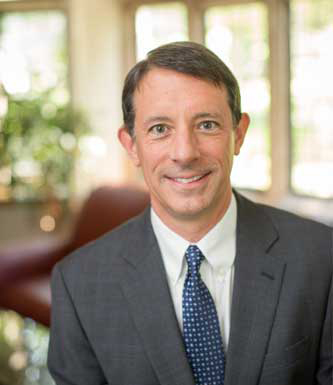A Rare Privilege and a New Challenge
It is a distinct honor to have been selected last spring as interim dean of the P.C. Rossin College of Engineering and Applied Science. I am focused on upholding and amplifying the achievements of our community of world-class faculty and students; together, we will continue to lead transformation in engineering education while exploring new solutions to society’s most pressing needs.
I joined the Lehigh faculty in 2003 and have served the university in various capacities since then, most recently as department chair of computer science and engineering. I have come to respect greatly the heritage of our institution—from its earliest days as an industrial powerhouse to more recent developments that place us in the vanguard of integrated learning and research.
I would like to take this opportunity to thank our former dean of engineering, S. David Wu, now provost at George Mason University, for helping to set us on a course that is well aligned with the modern realities of our discipline. I plan to continue the many fruitful initiatives that have emerged with David’s support, and to explore new ways to improve our educational and research profile.
In this issue of Resolve, you will find an article about the legacy that David built in his 10 years as dean of engineering. This article examines several of the interdisciplinary programs that David helped create, as seen through the eyes of the students who graduated from those programs.
The article “The Freedom to Ask Their Own Questions" illustrates how engineers are finding new ways to collaborate with their peers in science, business, the humanities and the arts. In our new Mountaintop Initiative, undergraduates from a wide variety of majors are working in teams on open-ended projects of their own choosing, from combating vitamin A deficiency to developing prosthetic hands.
The cover article, “Overlapping Opportunities" examines new endeavors in our two nanotechnology research centers—the Center for Advanced Materials and Nanotechnology, led by Richard Vinci, and the Center for Photonics and Nanoelectronics, led by Nelson Tansu.
The goal of the two centers is to channel Lehigh’s intellectual and physical resources to achieve breakthroughs that can be applied in energy, sustainability and the environment; and in health, bioengineering and medicine. To do this, the centers are leveraging success in specific areas where Lehigh has developed an international reputation—the use of state-of-the-art facilities in electron microscopy and spectroscopy to characterize properties at the nanoscale and to analyze and manipulate surfaces and interfaces.
The Q&A features Paul Corkum, one of the world’s leading physicists. Paul, who earned his M.S. and Ph.D. from Lehigh, is a pioneer in ultrafast laser spectroscopy who generates attosecond laser pulses that take photographs of electrons orbiting inside atoms.
Another article describes how John Coulter and his students use video equipment and optically polarizing films to observe the flow of molten polymers through the channels of injection molds and to judge the performance of channel designs. You’ll also find an article about the Pennsylvania Governor’s School for Science, Engineering and Technology, held at Lehigh last summer for high school students considering STEM careers.
I hope you enjoy this issue of Resolve. Please drop me a line with your thoughts and comments.
Daniel Lopresti
Interim Dean
P.C. Rossin College of Engineering and Applied Science
lopresti@lehigh.edu
Posted on:


